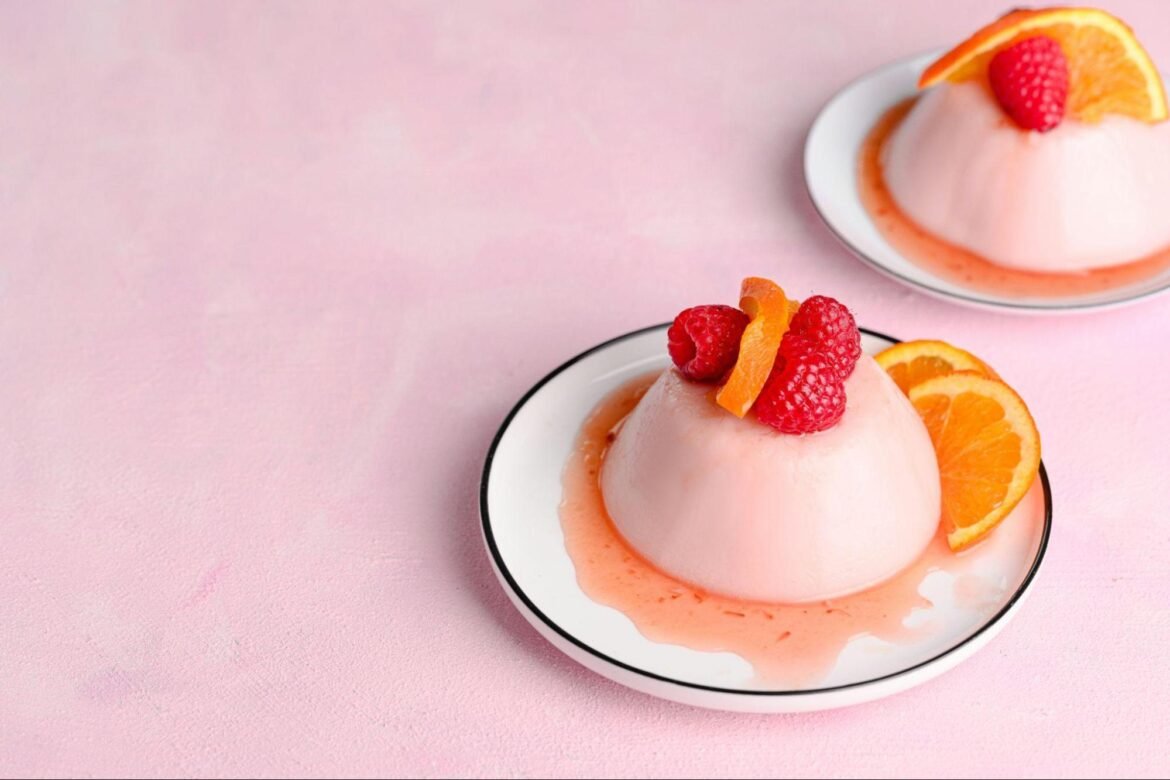In today’s fast-paced world, maintaining mental clarity and energy throughout the day is more important than ever. Surprisingly, the right kind of desserts, those low in sugar, rich in nutrients, and thoughtfully prepared, can play a supporting role in boosting focus and reducing fatigue. For example, a well-known macro friendly ice cream recipe from Flexible Dieting Lifestyle demonstrates how indulgence and nutrition can coexist.
Below is a roundup of simple, DIY dessert ideas that are both satisfying and supportive of cognitive performance. These recipes are designed to help avoid the common pitfalls of sugary treats, such as energy crashes and brain fog.
1. Fruit-Chia Parfaits: A Balanced Treat in a Jar
Fruit-chia parfaits combine layers of fresh berries or chopped fruit with Greek yoghurt and a sprinkle of chia seeds. Naturally sweetened with honey or maple syrup, these parfaits deliver:
- A steady source of protein and probiotics from the yoghurt
- Sustained energy from fibre-rich chia seeds
- Antioxidants and vitamins from fresh fruit
Perfect for an afternoon pick-me-up or post-dinner treat, this dessert supports stable blood sugar levels and sustained mental alertness.
2. Protein-Packed Energy Balls
These no-bake bites mix oats, nut butter, a scoop of protein powder, chopped nuts, and optional additions like dried cherries or cacao nibs.
Benefits include:
- Convenient, portion-controlled snacking
- Balanced macros (protein, fats, and carbs)
- A steady release of energy without the crash
Ideal for remote workers or students, they offer a simple way to stay fuelled without relying on processed snacks.
3. Banana-Oat Muffins with Nut Butter Swirl
Banana-oat muffins made with mashed banana, oats, eggs (or flax egg), and nut butter serve as a naturally sweet and fibre-rich option.
Advantages:
- Gluten-free and nutrient-dense
- Free from added sugars
- Suitable for batch preparation and refrigeration
Adding a swirl of nut butter after baking enhances flavour and adds healthy fats that promote satiety and focus.
4. Mini “Nice Cream” Bowls
Using frozen bananas blended with berries and optional protein powder, “nice cream” bowls replicate traditional ice cream, without added sugars.
These frozen desserts:
- Deliver a creamy texture and refreshing taste
- Provide fibre and antioxidants
- Avoid the sugar crash associated with traditional sweets
When portioned into mini bowls, they make an ideal evening dessert that satisfies without disrupting sleep or mental clarity.
5. Apple “Nachos” with Almond Butter
Thinly sliced apples arranged on a plate, topped with almond butter, cinnamon, and chopped nuts, form a visually appealing, quick-to-prepare snack.
Why it works:
- Apples provide fibre and natural sweetness
- Nut butter adds protein and healthy fat
- Cinnamon supports glucose stability and digestion
This snack is ideal for mid-day cravings, offering both taste and nutritional support.
6. Greek Yoghurt and Berry “Crisps”

Image from Unsplash
By combining mashed berries with Greek yoghurt and topping them with oats and chopped nuts, this quick crisp can be grilled for a warm, satisfying finish.
Key points:
- Offers probiotics and antioxidants
- Includes complex carbohydrates and healthy fats
- Mimics a traditional dessert without added sugars
These crisps offer comfort and nourishment without a crash in energy or mood.
Authority Perspective: NHS Guidance on Sugar Intake
According to the UK Government’s NHS recommendations, adults should limit free sugar intake to no more than 30 grams per day. Excess sugar, particularly from snacks and desserts, is linked to erratic energy levels, mood swings, and weight gain.
By choosing balanced desserts that incorporate fibre, protein, and healthy fats, individuals can enjoy sweet treats that align with dietary guidelines while supporting overall well-being and cognitive function.
Why Macro-Balanced Desserts Support Mental Clarity
Macro-balanced desserts differ from traditional sweets in their ability to:
- Stabilise blood sugar: Protein and healthy fats slow the absorption of carbohydrates
- Enhance nutrient intake: Whole foods offer essential vitamins and minerals
- Promote lasting energy: Unlike refined sugars, complex carbs fuel the brain steadily
When included as part of a well-planned routine, these desserts contribute to focus, memory, and emotional stability.
Practical Tips for Daily Integration
- Prepare in batches: Set aside 30 minutes weekly to prepare snacks like muffins or energy balls
- Use portion control: Store desserts in small containers for quick access
- Keep them visible: Healthy options that are easy to see are more likely to be chosen
- Hydrate: Drinking water before and after snacking can aid digestion and reduce unnecessary cravings
Addressing Common Misconceptions
“Healthy desserts won’t satisfy cravings.”
In fact, many people report these nutrient-rich desserts as more filling than refined sweets, helping to reduce overeating later in the day.
“They’re still high in calories.”
When prepared with whole ingredients and mindful portions, these desserts support satiety and overall calorie control.
“They’re complicated to make.”
Each recipe shared above uses minimal, common ingredients and takes only minutes to prepare.
Real-World Impact on Mood and Productivity
Individuals who incorporate macro-friendly, low-sugar desserts often experience:
- Fewer sugar crashes
- Better mood regulation
- Improved sleep and mental clarity
- Reduced dependence on processed snacks
This is especially relevant for those working from home or maintaining demanding schedules.
Smart Sweets for Sharper Minds
Enjoying dessert doesn’t have to compromise health or productivity. With macro-balanced options like “nice cream,” fruit parfaits, or energy balls, it’s possible to indulge while maintaining energy and mental focus.
These DIY desserts offer a realistic, enjoyable way to meet both wellness goals and sweet cravings. By combining flavour with function, they represent a new generation of smart snacking, designed not just to satisfy taste buds, but to support the mind.


